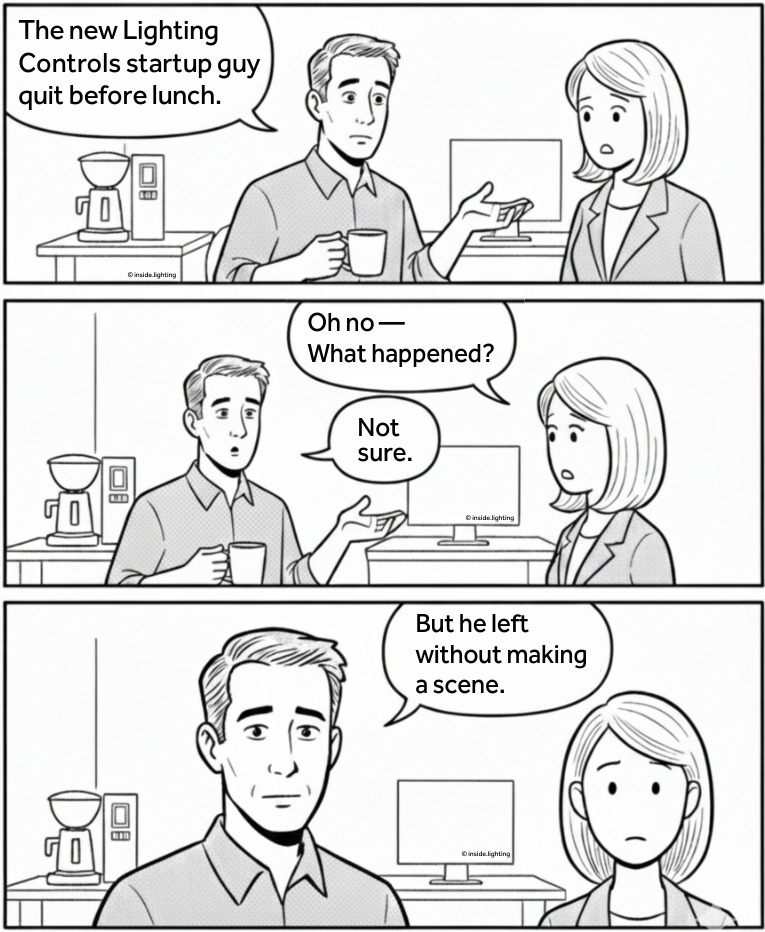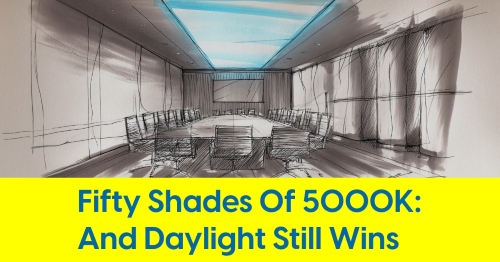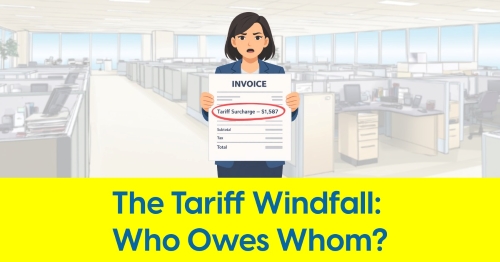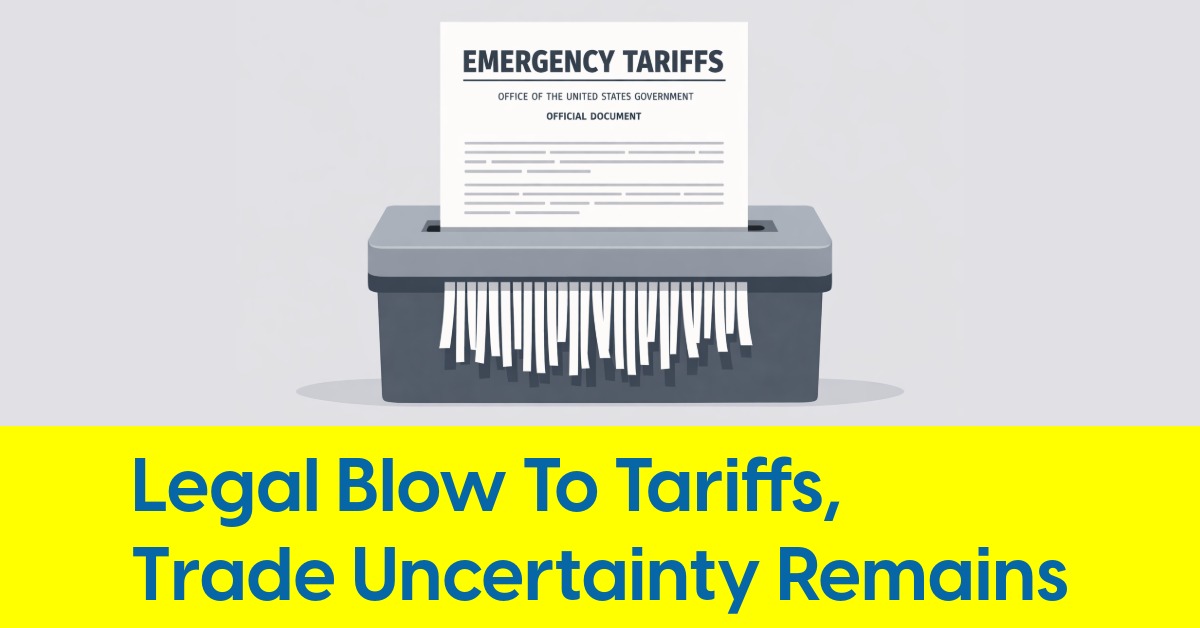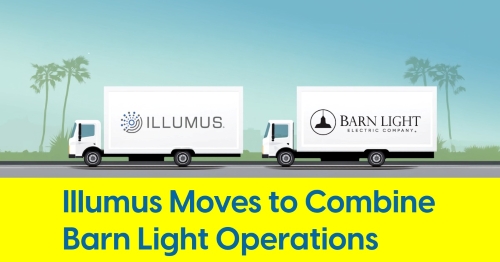February 12, 2024
Ecosense Accused of Infringing Lumenpulse Patent
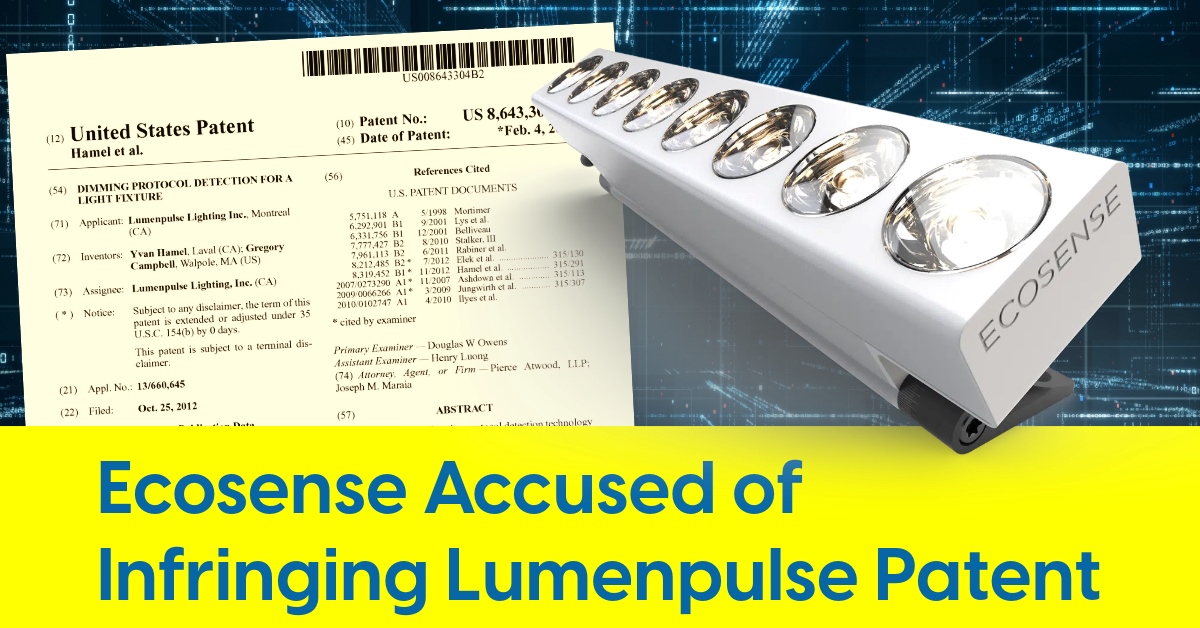
Above: Ecosense TROV L60 fixture cited in recent lawsuit
Use of dimming technology in TROV and Aurora products sparks legal battle with LMPG
Canadian lighting company LMPG, parent company to numerous architectural brands including Lumenpulse, has filed a patent infringement lawsuit against Korrus, the parent company of Ecosense Lighting. LMPG alleges that Ecosense unlawfully uses Lumenpulse's patented technology for detecting and adjusting to various dimming protocols.
The legal action, filed in the U.S. District Court for the Central District of California, claims that features of certain Ecosense TROV and Aurora products infringe directly on Lumenpulse's patent, awarded in 2014.
In addition to Ecosense, the lawsuit also names additional anonymous defendants as “DOEs,” indicating that LMPG may believe there might be other individuals or entities involved in the alleged wrongdoing but has not yet identified them. This placeholder allows the plaintiff to amend the complaint later to include the actual names once they are discovered through investigation or discovery processes.
Alleged infringement of dimming technology
The core of the dispute is about a technology that Ecosense uses in its TROV and Aurora products which feature what's called "Korrus Auto Sensing Technology" or KAST. This technology is designed to detect and adjust to different types of lighting control signals, known as dimming protocols. The technology allows light fixtures to understand and adapt to different commands for adjusting brightness levels, coming from various types of lighting control devices.
LMPG claims that their patent, identified as U.S. Patent No. 8,643,304 and titled “Dimming Protocol Detection For a Light Fixture,” protects their proprietary and innovative design. They argue that Ecosense's TROV and Aurora products with the KAST feature, which can automatically detect and adjust to different dimming signals (like ELV, 0-10V, DALI, and DMX), is utilizing the same methods that Lumenpulse patented back in 2014.
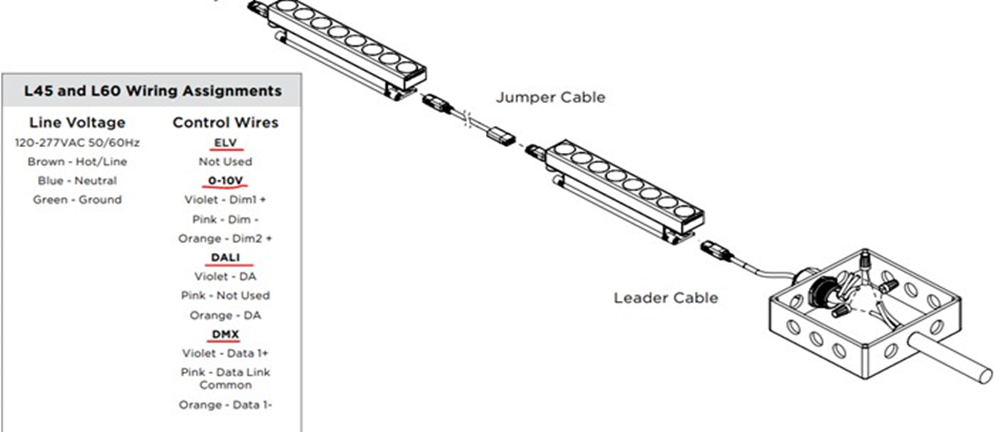
Above: Excerpt from lawsuit - TROV installation instructions that cite four dimming protocols
Two notable observations:
-
IP lawsuits affecting lighting and control technologies tend to be very technical and involve extensive documentation, with legal complaints often spanning dozens of pages. In contrast, this lawsuit, centering on a single patent, presents a succinct six-page complaint. This brevity suggests a strategic reserve of detailed arguments for future stages, likely when LMPG responds to an anticipated Ecosense motion to dismiss, a common early phase in IP litigation.
-
Another notable aspect is the timeline between the initial notice letter sent to Ecosense and formal legal filing of the lawsuit. Traditionally, there can be a considerable delay, sometimes extending over months or even years, from the initial notice to the lawsuit filing. However, in this instance, the lawsuit was promptly filed on January 26, merely 2 ½ weeks following LMPG's written infringement notification to Ecosense on January 9. This rapid progression could indicate an immediate and strong resistance from Ecosense or perhaps an urgent commercial motive driving LMPG's actions.
LMPG is seeking a court ruling that Ecosense infringed on its patent. The company wants an injunction that prohibits Ecosense from making, selling, or importing the disputed products in the U.S. LMPG also seeks damages for the infringement, including lost profits or at least a reasonable royalty and wants Ecosense to cover its legal costs and attorney fees.
Court records show that Ecosense has not yet received the summons related to the patent infringement lawsuit filed by LMPG. Once served, Ecosense will have 21 days to respond to the allegations. Over the weekend, representatives from both LMPG and Ecosense were contacted by Inside Lighting but each party declined to comment on the ongoing litigation.
